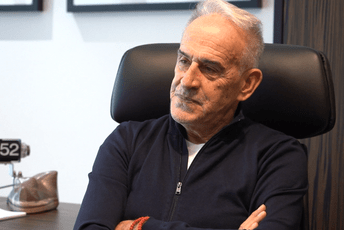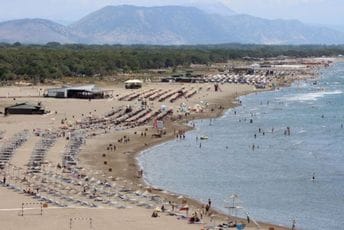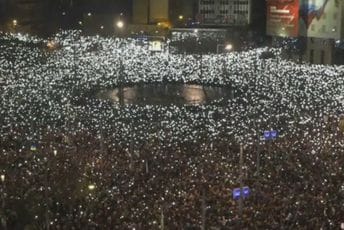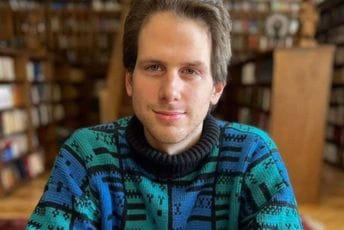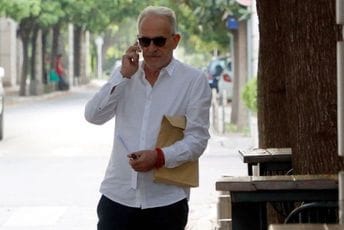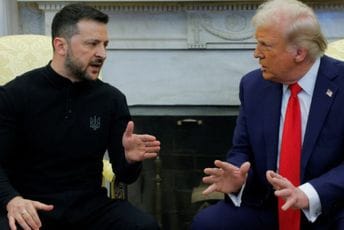Waging a hybrid or special war, hybrid threat, asymmetric warfare, special operations, low-intensity conflict, and fourth-generation war (the terminology depends on the use of sources and concepts in Western or Eastern literature) essentially represents the conduct of politics to achieve goals that benefit the aggressor.
Proceeding from the fact that waging war in the classical form, in the conditions of the modern world, does not pay off and does not guarantee the desired outcome, resorted to finding activities and measures that can achieve the expected goal with fewer costs and negative political and economic consequences. During hybrid wars, inaccurate information is disseminated and basic cohesive values are attacked to undermine the bond between the state and its citizens, thereby preparing the ground for chaos and unrest.
In principle, it is considered that unarmed forms of conducting hybrid war make up to 93% of activities, while only 7% makes the direct conduct of military operations. There is a whole range of activities in different social spheres, from the economy to culture and the media to conducting foreign and domestic policies, that are aimed at achieving the goals of “war” without the use of brute force and armed aggression.
Please allow us to explain our observation of the contemporary social reality in Montenegro from this perspective.
If we only mention a few announced moves in the economy, such as the possibility that our energy sector will be taken over by a neighboring country, the imposition of unacceptable business conditions on our largest exporter and its shutdown, recognized activities on the takeover of the Port of Bar and the Railway Infrastructure, imposter and criminal borrowing, blackmailing with the export and import of food, and much more, we recognize the outlines of the intention to collapse the internal and external stability and the country's independence!
However, we believe that the main activities are carried out in the direction of changing the consciousness of the citizens of Montenegro through religious, media, and cultural attacks on the personal and social identity of citizens of Montenegro. An increase in the intensity of these pressures is recognized, varying from the highly sophisticated to the vulgarly crude.
At least some of the recent ones must be pointed out:
- proclaiming the natural beauty of Montenegro as a “protected asset of Serbia”;
- sanctifying the stones on Ivanova Korita;
- maliciously and untruthfully revising the historical facts about the Lovćen Mausoleum,
- declaring Dukljan's rulers and saints “Serbian”;
- provoking the public by announcing the signing of a “Founding Agreement” with the Church of Serbia;
- chauvinistic statements by the dignitaries of this church;
- defining the civil-rights activism as “nationalism”;
- creating a false image of social reality about the existence of two antagonistic “nationalisms”; and, ultimately,
- if Montenegrin nationalism does not exist, it should be invented and constructed in the reaction of the citizens of Montenegro to justify the aims of the power centers supported by para-civilian activists and “independent” experts (who are neither independent nor experts).
It is clear that their goal is to provoke the public into civil resistance and to the assigned role of the “mob” in the “Serbian world”. It is also clear that their goal is to provoke as violent a reaction as possible and cause controlled chaos and anarchy. Thus, they would show that Montenegrin nationalism exists and that their sacred mission is to be a factor of “reconciliation”.
The role of the media in Montenegro should be looked at, in particular; their ownership structure should be primarily analyzed and the editorial policy viewed through that prism. This also applies to the Public Service, which, although it belongs to all the citizens of Montenegro, is an active player in this aggressive attempt to change the citizens' identity awareness through its personnel choices and editorial moves.
Two incidents recently exposed the role of the “dependent” media and their mentors.
The direct and malicious behavior of the Prime Minister of Montenegro toward a journalist from the media who critically views reality and constantly tries to question the role and actions of those in power, primarily the government, clearly shows his self-centeredness and his intention to clean up the media scene from all those who are not on the “line” of implementing his (or, rather, their) goals. The shameful behavior of the present journalists and their half-heartedness to his insinuation that this media house should be stopped from the operation was particularly painful. The lack of personal integrity and professional ethics is devastating for our society as a whole.
Two days ago, a TV station that has clearly placed itself in the role of the contractor for the Serbization of the citizens of Montenegro, and which is known for its one-sided reporting and ordered commentary, wanted to give the appearance of a confrontation of opposing opinions and hosted a priest of the Church of Serbia, Jovan Plamenac (an incomplete student, known as a Pobjeda journalist from the war-mongering time of the storming of Dubrovnik), a lesser-known present editor of the newspaper Svetigora, Rajo Vojinović, and a member of the Nikšić Parliament and the Presidency of the Liberal Party, Jelena Marković. We witnessed malicious attempts to humiliate a woman and councilwoman only because she thinks differently.
The two “gentlemen” exposed their cleronationalism and chauvinism by labeling the interlocutor with names that adorn folk lyrics of Muslim-Bosnian roots. Indirectly, but very clearly, they showed what they think about citizens of Montenegro who do not belong to their religious national group, specifically the citizens with a Muslim Bosniak identity.
While failing to realize and accept that Omer and Merima are cultural treasures of the entire Western Balkans, the gentlemen expressed a shameful attitude towards the social values of Montenegro and an obvious lack of dialogue culture. It has long been scientifically proven that in the absence of arguments incomplete personalities resort to insults and labeling. Special attention must be paid to the unprofessionalism of the show hosts and their targeted and malicious promotion of only one side during the discussion.
The complexity of the news media operation that is underway in Montenegro does not lag behind in its goals to the one carried out by Russia in the aggression against Ukraine (“special military”).
The story about the fight against organized crime is just a smoke screen for the implementation of the operation of the identity “corruption” of the citizens of Montenegro. Opposing organized crime is and must be a constant task of all institutions, and there must be no compromise. But the violent change of the cultural identity matrix in Montenegro cannot be accepted and must not be allowed.
In this low-intensity conflict with two opposing concepts of social reality in Montenegro, the only way out is through elections and stopping all the retrograde processes of endangering the identity and creating conditions for all the citizens to exercise their rights. We emphasize “ALL the citizens” because Montenegro is the state of all its citizens, equally and without reservation.
We are sending our sincere greetings, firmly believing that the only possible future for Montenegro and its citizens is in the company of European nations.

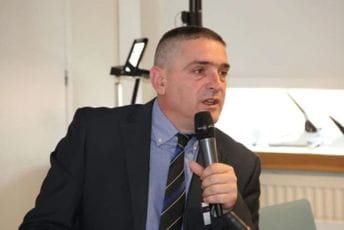


 6
6